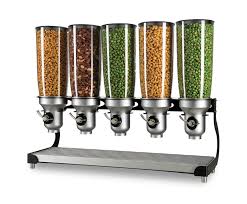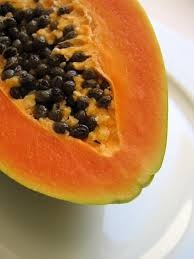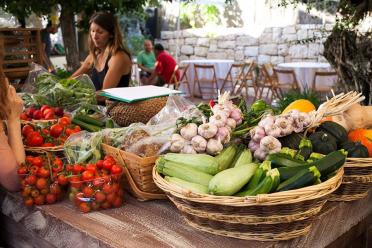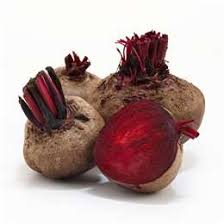Passover is over.
All the matsos have been eaten (and if not, you can easily put together a few more lasagnas to finish the remaining stock). The traditional Passover plate was returned to its place in the cupboard until next year, and the chametz was revealed, with the inevitable commentary regarding how much we missed it. There are a few more Sfenjes and Moflettas left over from the celebration that marks the end of the holiday, but in general – life is now returning to normal with chametz, work, and slightly less traffic on the way to nature reserves and the border control.
The house, which received a pampering treatment for Passover (including the windowsills, a small paint job and a minor furniture replacement) still looks nice and festive, and is mostly neat and pleasant. It would be nice to maintain this order as much as possible – simply to maintain the existing order rather than work so hard to achieve a neat house.
This is of course a wonderful idea, and you can actually try a few tricks – for example, list all the tasks needed to maintain the existing order, by categories (dust, laundry, putting things away) or according to rooms, and then divide them between the household members. The tasks could be appointed according to the expected workload (eg what should be done every day, what once a week and what only once a month). You can try to store fewer things, which in turn will cause less of a sense of overload and chaos, according to the minimalism theory and get rid of all unnecessary objects (according to Marie Kondo's recommendations). If these tricks, or any other, still don’t work – that's fine too. There must be a reason why cleaning up for Pesach requires so much time and effort.
There is another cleaning that is required – and this one should be maintained all year round. I mean cleaning, or actually preventing the pollution on Earth as a result of the use of polluting products, primarily plastic.
The Earth’s population has grown, the number of people who have access to polluting plastic products has also grown, the variety of polluting products has increased – but the amount of earth, land, rivers, seas and oceans remains unchanged.
We have reached unprecedented and heartbreaking conditions associated with the amount of plastic that accompanies us – difficult pictures of animals dying from the plastic that they cannot avoid, filling their stomachs instead of food, trapping them, suffocating and poising them. Pictures of an island floating in the sea, entirely made of plastic waste.
There is more, not all the damage can be photographed. Some of it is caused by such small plastic particles, micro-plastic, that the damage they cause is deceptive: we cannot see it. These are tiny plastic particles that broke down and seeped into our groundwater, or reached the sea. And from there to our food chain.That is, we’re eating plastic, and we have no way of knowing it, and we have no way of filtering it out. Needless to say, this is a nutritional supplement that does not cause our body any benefit, at best.
The growing concern of plastic comes not only from the frightening quantities that have accumulated, but also from the fact that it will remain here much after us. Every plastic bottle we leave in the woods or throw into the sea will exist well after we no longer walk on earth. And the question is – what kind of world are we leaving for our children. What chance are we leaving them to live a healthy life and eat unpolluted food. No one wants to assist the possibility that his child will get sick, God forbid, but when it's hard to look around without seeing a line of plastic products, that could be the result.
In our store, we make every effort to avoid the consumption of plastic: our deliveries are done in reused cardboard boxes, the products you buy at our store do not have to be packed in plastic bags, and they can also be packaged in paper bags. Most of our produce we do not wrap in cellophane (a small portion we recieve wrapped), and recently we added the option to buy different products (such as legumes) by weight, from a dispenser, so you can avoid the plastic packaging (either use paper bags or bring your own containers from home).
Some of the comfort products we are used to – such as straws or disposable plates and utensils, and even diapers for children – we provide here in their biodegradable version.
We hope that these small changes will bring about a big change – and that we will be able to significantly reduce the amount of non-biodegradable plastic we add to the world.
To health!
Yours,
The garden team
We can expect to receive in our organic vegetable baskets (draft only):
Cucumbers
Tomatoes
Lettuce
Potatoes
Kohlrabi
Parsley
Spinach
Cabbage
Kale
In the LARGE vegetable baskets also:
Sweet potatoes
Turnips
Cilantro
In the organic fruit baskets:
Oranges
Bananas
Sweetie
In the LARGE fruit baskets also:
Clementine
Red grapefruit













